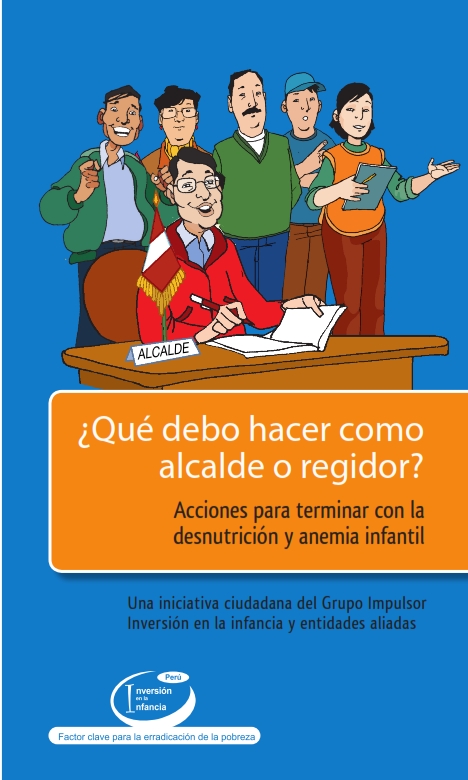The Ministry of Health of Peru trains mothers in charge of communal kitchens to combat anaemia in young children
The event held on strategies to prevent anaemia included training sessions for mothers who coordinate communal kitchens. On 30 January 2016, in the district of Villa El Salvador in Metropolitan Lima, the Peruvian Ministry of Health collaborated with the Ministry of Education through the Nutriwawa…
 The event held on strategies to prevent anaemia included training sessions for mothers who coordinate communal kitchens.
The event held on strategies to prevent anaemia included training sessions for mothers who coordinate communal kitchens.
On 30 January 2016, in the district of Villa El Salvador in Metropolitan Lima, the Peruvian Ministry of Health collaborated with the Ministry of Education through the Nutriwawa project to organize an information event on anaemia prevention, targeted at the mothers who coordinate the 3,000 communal kitchens in Lima.
The initiative was attended by the first lady, Nadine Heredia; other welfare programmes such as “Cuna Más” [A Cradle More], “Qali Warma” and “Pensión 65” of the Ministry of Development and Social Inclusion; “Trabaja Perú” [Work Peru] of the Ministry of Labour and Employment; the Commission for the Formalization of Informal Properties (COFOPRI) of the Ministry of Housing, Construction and Sanitation; and “Eating Fish” of the Ministry of Production.
The event consisted of training workshops, during which nutritionists, nurses, promoters and other health professionals’ dispensed information and training to mothers and women at communal kitchens about how to prevent anaemia in children aged between 6 and 35 months. The training is part of a series of workshops which the Ministry of Health is developing as part of the 2014-2016 National Plan to Reduce Chronic Child Malnutrition and Prevent Anaemia.
The primary aim of the training was to root out the beliefs of those present about certain iron-rich food from animal sources and encourage a more balanced and nutritional diet. Secondly, it involved teaching proper hygiene – hand washing – to prevent illnesses such as diarrhoea and respiratory infections. Above all, the purpose of the workshops was to encourage people to supplement diets with micronutrients: the women were trained about the correct use of sachets of micronutrients (iron, folic acid, zinc, vitamins A and C) distributed in health centres for free by the Ministry of Health. Indeed, the Ministry of Health announced this year that it will distribute 378 million micronutrient sachets which will help 1,050,000 children.
The training workshops are part of a broader strategy of Communication for Social and Behavioural Change.
Iron-deficient anaemia is a major health problem affecting children under three years of age in Peru. Although chronic malnutrition in Metropolitan Lima is low, anaemia affects 38 per cent of the population, while the national average is 43 per cent. “The problem is that people do not realize the effect that anaemia has, especially on children under two. Children with anaemia do not receive enough oxygen and therefore their neurons are not well connected, the child will not do well at school and will not be a good worker, failing to develop their full potential,” said León García, advisor to the Vice-Minister of Public Health in Peru.
The nutritional education activities are therefore part of the broader strategy of Communication for Social and Behavioural Change. The training workshops are expected to have a multiplier effect. Once trained, the mothers coordinating the communal kitchens endeavour to share their new knowledge within their communities by visiting houses in the municipality where there are children under three, therefore raising awareness and convincing mothers to go to health centres and pick up the micronutrient sachets.
Efforts are thus being made to improve the knowledge of women of reproductive age about the value of micronutrient supplements by mobilizing and empowering communities and, more specifically, by involving the mothers who coordinate communal kitchens as agents of changes to eating practices.
For more information on the event: Ministry of Health of Peru (Minsa)
For more information on the training workshops for women in charge of communal kitchens
For more information on the 2014-2016 National Plan to Reduce Chronic Child Malnutrition and Prevent Anaemia in the Country
For the manual on the elimination of malnutrition and child anaemia: As a mayor or town councillor, what should I do? Actions to eliminate malnutrition and child anaemia